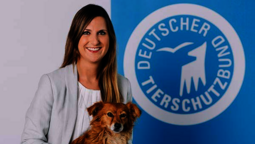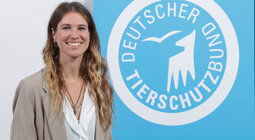On the occasion of International Cat Day on August 8, the German Animal Welfare Federation is campaigning for a Germany-wide regulation for the protection of cats: In order to prevent the uncontrolled reproduction of animals and reduce the associated suffering of street cats, the association is calling for a nationwide castration, identification and registration obligation for cats. As part of its campaign “Animal shelters help. Help animal shelters!” campaign, the German Animal Welfare Federation raises awareness of the problem and the challenges faced by animal shelters: www.tierheime-helfen.de/katzenschutz.
“Unneutered cats and tomcats reproduce uncontrollably outside and produce unwanted offspring that either end up in animal shelters or increase the population of free-roaming street cats,” explains Dr. Dalia Zohni, specialist for pets at the German Animal Welfare Federation. “Only neutering can help to minimize the suffering of street cats and at the same time relieve the burden on animal shelters.” The German Animal Welfare Federation is therefore calling for the introduction of a nationwide cat protection ordinance.
STREET CATS STARVE AND SUFFER FROM DISEASES
There are an estimated two million street cats in Germany. They are all the offspring of unneutered outdoor cats from private households. Even if they have to fend for themselves, they are not wild animals. As domesticated pets, they are dependent on human care. Street cats very often suffer from diseases, parasites and malnutrition. Many animal welfare organizations take care of them by setting up supervised feeding stations, catching the animals, having them neutered, releasing them back into their familiar environment and continuing to care for them.
SOME MUNICIPALITIES SET A GOOD EXAMPLE
In order to tackle the problem of street cats and curb cat misery, more than a thousand towns and municipalities have now made it compulsory to neuter, identify and register outdoor cats. Most municipalities with such cat protection regulations are in Lower Saxony and North Rhine-Westphalia. In the largest federal state, Bavaria, for example, the situation is different: The first effective cat protection ordinance, i.e. with a clearly defined area of application, has only recently been issued there in the municipality of Laufen.
In addition to neutering, the cat protection ordinances require cats to be identified by a transponder with a microchip and registered, for example with FINDEFIX, the pet register of the German Animal Welfare Federation. Identification and registration offer the possibility of assigning each cat to its owner - and thus also the advantage that escaped animals that end up in an animal shelter stay there for less time and can be re-homed more quickly.







